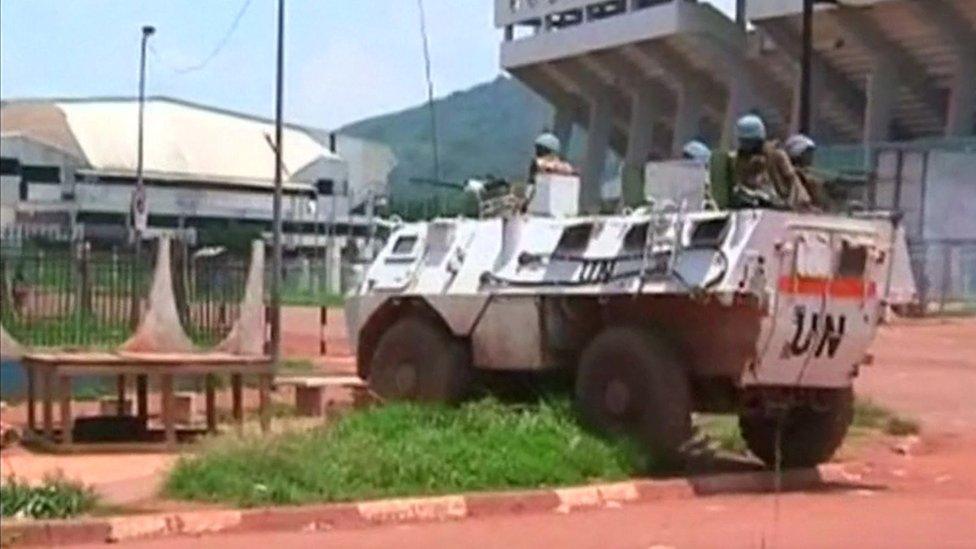Central African Republic warning over 'blood diamonds'
- Published

There has been violence and tension on the streets of Bangui
Authorities in the Central African Republic (CAR) should confiscate "blood diamonds" to prevent them being exported, Amnesty International says.
The human rights group said, external CAR's biggest traders have been buying diamonds without properly checking their origins.
Armed groups on both sides of CAR's conflict have been profiting from the diamond trade, it said.
There has been renewed violence in the capital, Bangui, in recent days.
The fighting between Christian and Muslim groups has left at least 38 people dead and forced more than 10,000 to flee.
CAR has been wracked by violence since a mainly Muslim rebel group, the Seleka, seized power in March 2013.
The Seleka group was then ousted, sparking a wave of violent reprisals against the Muslim population, thousands of whom fled their homes.
The United Nations says as many as 2.7 million people in Central African Republic are in dire need of assistance
Central African Republic: Key facts, dates and figures
Amnesty said both the Seleka and the Christian or animist anti-balaka militia had been profiting from the diamond trade by controlling mine sites and "taxing" or extorting "protection money" from miners and traders.
Diamond trading firms could soon start exporting stones stockpiled during the conflict, if CAR is seen to have met conditions set by the international Kimberly process, external and an export ban is lifted, Amnesty said.
"The government should confiscate any blood diamonds, sell them and use the money for the public benefit," said Amnesty's Lucy Graham.
"As the country seeks to rebuild, it needs its diamonds to be a blessing, not a curse."
The capital appeared to be calmer on Wednesday, though the local Red Cross were quoted as saying it was still too dangerous on Bangui's streets to pick up bodies.
Interim President Catherine Samba Panza returned from the UN General Assembly on Tuesday, and told the BBC that elections postponed for October would be cancelled.
She accused "former dignitaries" of fomenting violence, singling out former President Francois Bozize. He responded by saying that "democracy was murdered".